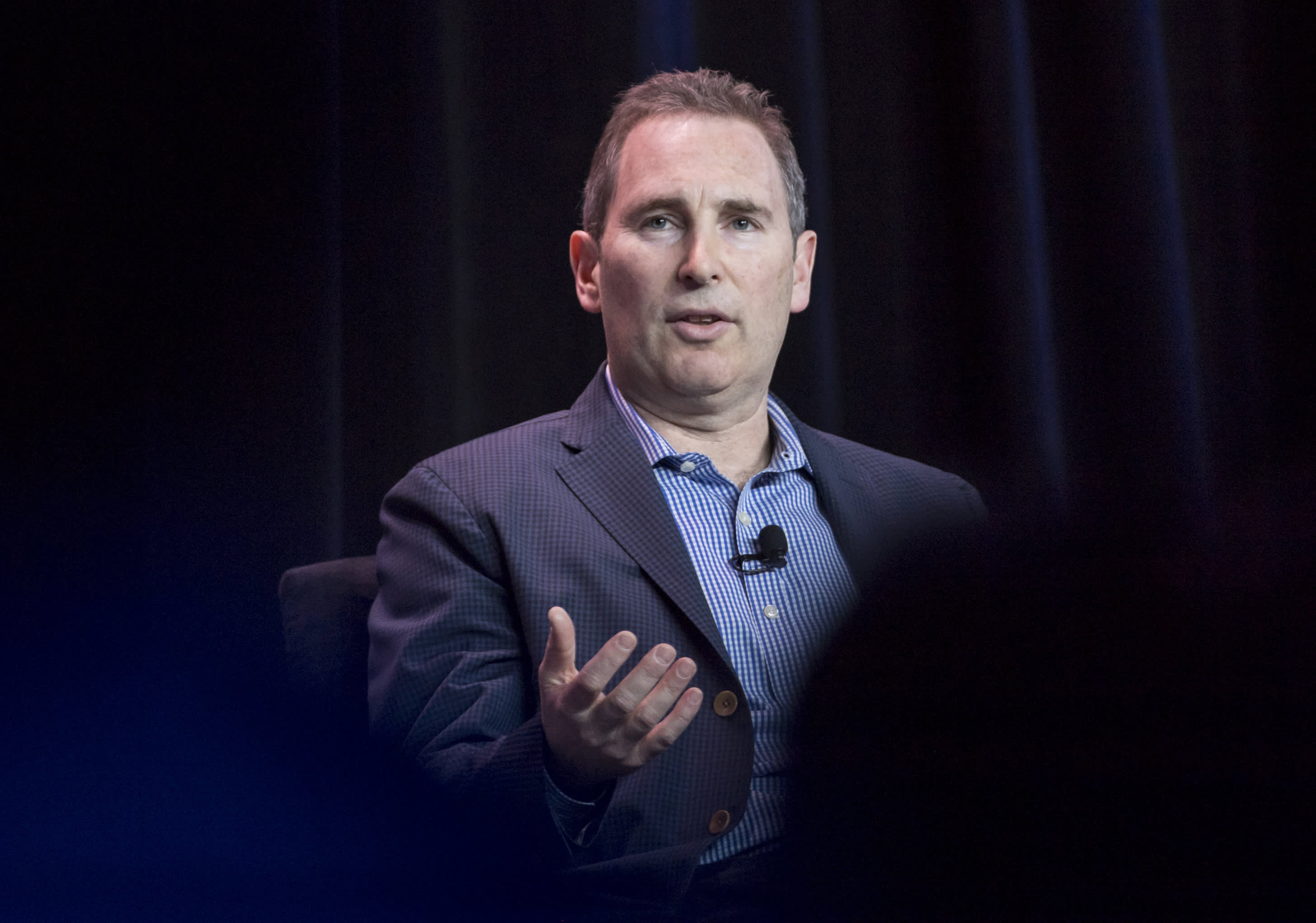Andy Jassy, chief executive officer of web services at Amazon.com Inc., speaks during the Amazon Web Services (AWS) Summit in San Francisco, California, U.S., on Wednesday, April 19, 2017.
David Paul Morris | Bloomberg | Getty Images
When Amazon announced that Andy Jassy, the head of Amazon’s cloud unit, will replace founder Jeff Bezos as CEO later this year, the company left out a minor detail: The name of the person who will run Amazon’s cloud. The omission set off speculation in tweets, text messages and Reddit comments.
One name kept coming up: Matt Garman, an engineer who spent years running Amazon Web Services’ core EC2 virtual computing service and was there when it was announced in 2006.
Garman is not very well known to the hordes who visit Las Vegas each year to attend the AWS Reinvent conferences. Garman isn’t a regular on the Reinvent stage, unlike the polished Jassy and Amazon’s T-shirt-wearing chief technology officer from the Netherlands, Werner Vogels. But Garman is well-respected inside Amazon — similar to the way Satya Nadella was regarded internally as he took Microsoft’s helm from Steve Ballmer in 2014.
Just as tapping Jassy to be Bezos’ successor signals Amazon is firmly a technology company and not just a retailer, choosing Garman would show that AWS, which has become a information-technology supplier to large companies such as Coca-Cola and GE, doesn’t want to lose its relevance with programmers.
Garman would be the most logical choice to replace Jassy, said Matt McIlwain, managing director at Seattle’s Madrona Venture Group. “I didn’t expect it would happen this quickly,” McIlwain said.
AWS declined to comment, and Garman didn’t respond to a request for comment.
It’s been only a year since Amazon moved Garman from vice president of compute services to vice president for AWS’ sales and marketing functions — in effect, the chief operating officer of AWS. He also joined Amazon’s circle of top executives, known as the S-team. While Garman hasn’t had the new job for long, he’s been reshaping his organization, McIlwain said.
“It’s very hard to be successful on the product side of the house and the sell-the-product side of the house,” McIlwain said.
AWS has also increasingly put him in front of the press to discuss announcements such as a deal with team communication software maker Slack.
Garman’s experience sets him apart, but there are others Amazon could tap to run cloud services instead:
- Peter DeSantis. For the past four years DeSantis, another member of the S-team, has given a prominent evening talk to show off infrastructure developments such as Arm-based server chips. Like Garman, DeSantis witnessed the birth of AWS at Amazon.
- Charlie Bell. Bell is a low-profile executive in charge of utility computing services at AWS, and he’s been at Amazon for 23 years.
Amazon could also hire someone outside the company to run AWS, but Amazon maintains unconventional practices and values that could make it harder for an executive at another company to adjust quickly to such a large role.
One option is to bring back Adam Selipsky, who once held the role Garman has today. Selipsky left AWS in 2016 to run data visualization software maker Tableau, which Salesforce acquired in 2019 for $14.8 billion.
One thing is clear: Amazon won’t make Jassy run the cloud business along with the rest of Amazon.
Amazon now has nearly 1.3 million employees, not including contractors and temporary workers, and the company operates in markets beyond cloud and commerce, including advertising and devices. Leading across all those areas was not even something Jeff Bezos did.
“We’ll be working on backfilling the AWS role, and we’ll talk about that in the future,” Brian Olsavsky, Amazon”s finance chief, told analysts on a conference call on Tuesday.
Nominations are open for the 2021 CNBC Disruptor 50, a list of private start-ups using breakthrough technology to become the next generation of great public companies. Submit by Friday, Feb. 12, at 3 pm EST.
WATCH: ‘It’s not a shocker’ to see Andy Jassy become Amazon CEO: Brent Thill
